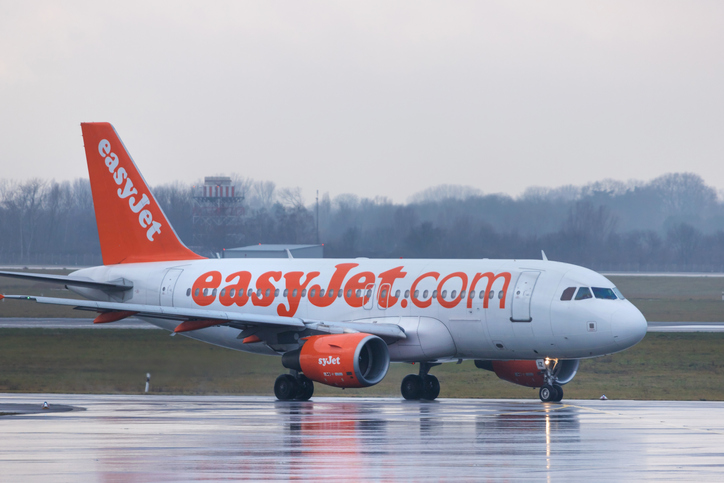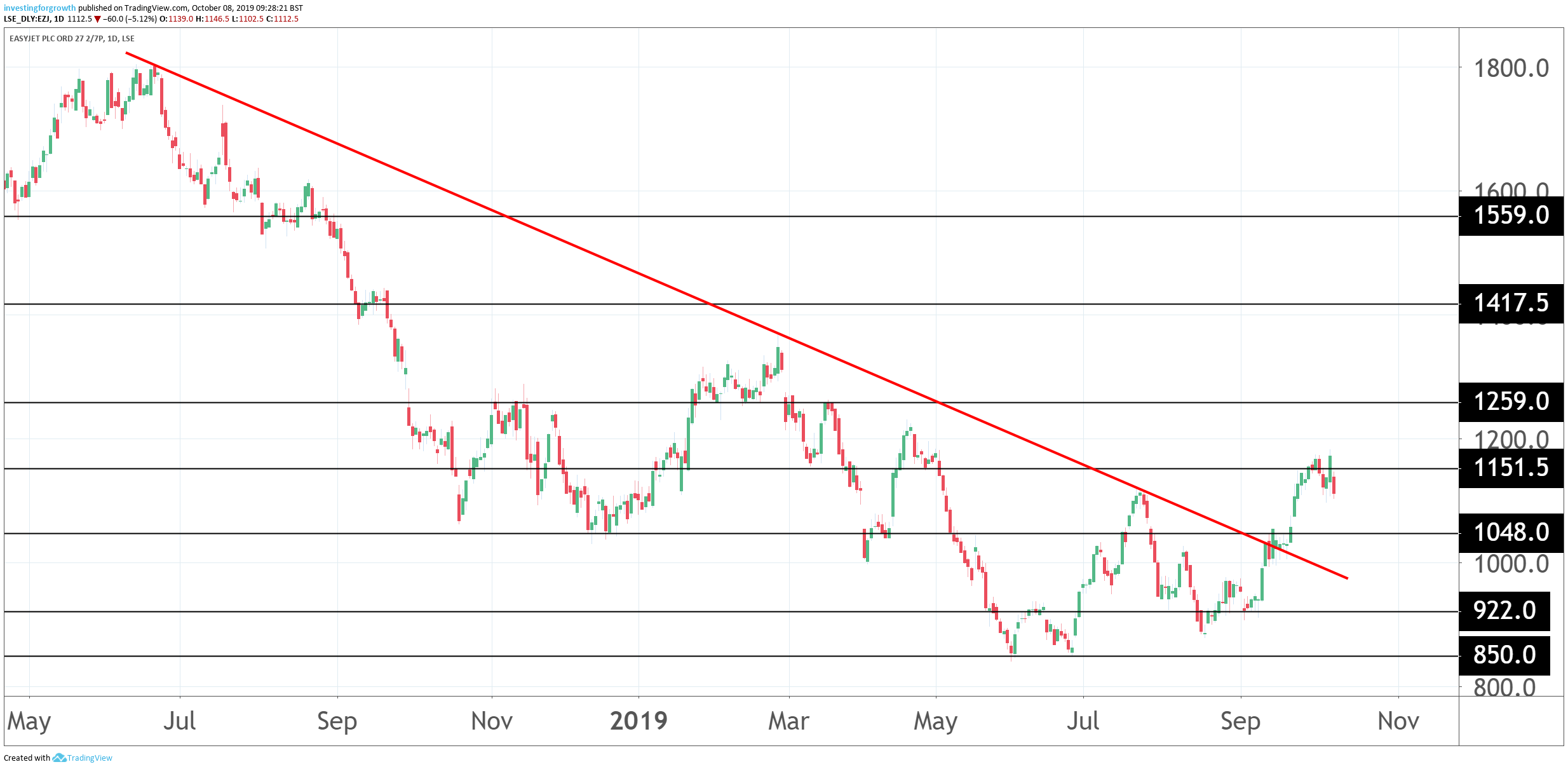High-flying easyJet brought down to earth with a bump
Up over a third since June, our head of markets explains why easyJet shares just took a hammering.
8th October 2019 09:35
by Richard Hunter from interactive investor
Up over a third since June, our head of markets explains why easyJet shares just took a hammering.

The airline industry is tough at the best of times, being one where there are as many factors outside a company's control as within.
These outside factors can sometimes be positive, as opposed to the historic negatives of virus outbreaks, volcanic ash clouds, terrorism and adverse weather conditions. For example, the current propensity of strike action within the industry has actually played into easyJet's (LSE:EZJ) hand in recent months, given disruption at the likes of British Airways, owned by International Consolidated Airlines (LSE:IAG), and Ryanair (LSE:RYA), while the unfortunate demise of Thomas Cook (LSE:TCG) could also provide further opportunities.
In the meantime, the company has a laser focus on its own self-help initiatives, with a particular eye on costs and increasing ancillary revenue, the latter of which is always a boost given the wafer-thin margins on which the business operates.
Within the reported fourth quarter figures, increased capacity has led to another 9% hike in passenger numbers, there is a marginal decline in the cost per seat and demand in the immediate future is robust. Underpinning the investment case is a dividend yield of 5%, currently well-covered by earnings, although ultimately in the hands of those earnings being maintained.

Source: TradingView Past performance is not a guide to future performance
Less positively, total revenue per seat has declined, total costs will increase by 12%, given the exogenous factors of adverse currency movements, and the price of fuel, and the load factor has also dipped slightly.
The full ramifications of the UK's departure from the EU have also yet to wash through, either in terms of any future sterling weakness which could crimp consumer demand or, indeed, additional travel regulations which would add further cost.
- Why there's big potential upside for the airlines sector
- Why oil prices have rocketed and the shares that benefit
- Can easyJet keep recent rally going?
Meanwhile, the industry remains one typified by an intensity of competition which has seen a number of smaller players go to the wall over recent years.
easyJet now finds itself at an interesting juncture. The firm's woes over the last year, which culminated in relegation from the FTSE 100 index in June, have resulted in a share price decline of 3% - they're down 6% today - as compared to a 1% decline for the wider FTSE 250 index.
However, since the recent nadir of early June the shares have rallied by 37% and, should this glide path be maintained, there remains an outside chance of easyJet regaining its FTSE 100 status at the next reshuffle in December.
As evidenced by the initial reaction to this update, however, that is certainly not a given since the company needs to display this continuous improvement against an increasingly challenging backdrop. The market consensus of the shares as a 'hold' is indicative of mixed views on easyJet's prospects, which is likely to remain the case until there is some improved visibility on progress.
These articles are provided for information purposes only. Occasionally, an opinion about whether to buy or sell a specific investment may be provided by third parties. The content is not intended to be a personal recommendation to buy or sell any financial instrument or product, or to adopt any investment strategy as it is not provided based on an assessment of your investing knowledge and experience, your financial situation or your investment objectives. The value of your investments, and the income derived from them, may go down as well as up. You may not get back all the money that you invest. The investments referred to in this article may not be suitable for all investors, and if in doubt, an investor should seek advice from a qualified investment adviser.
Full performance can be found on the company or index summary page on the interactive investor website. Simply click on the company's or index name highlighted in the article.